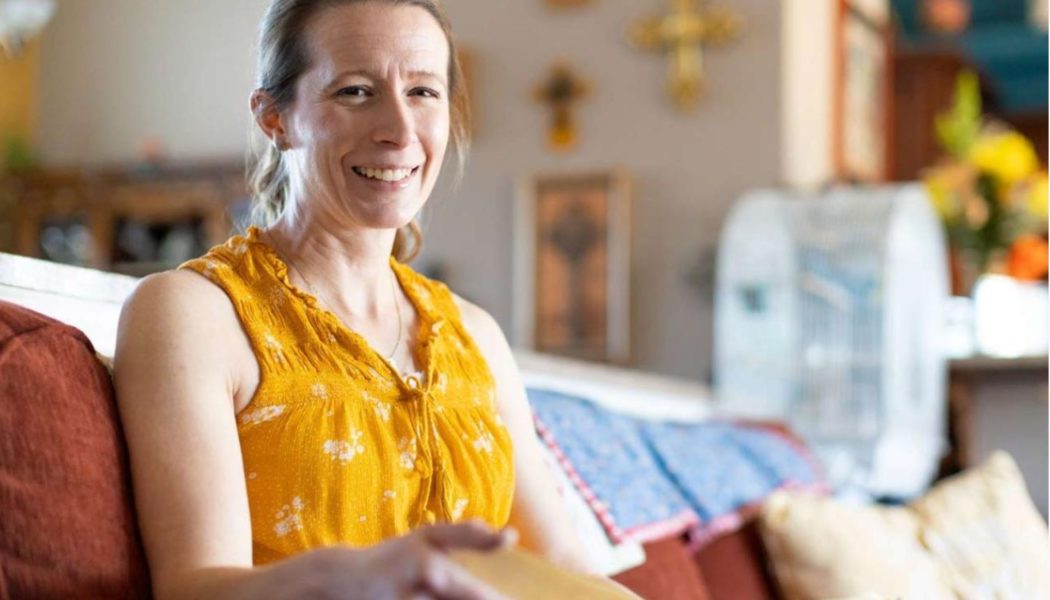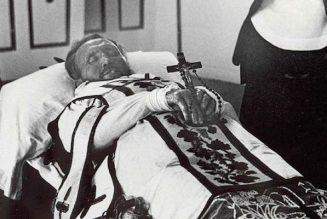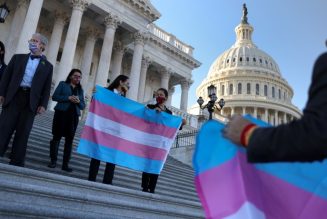COMMENTARY: Loving families’ only offense is their fidelity to traditional teaching.
I keep being told that most Americans simply don’t care about religious freedom. As a committed Catholic and religious-freedom advocate, I find that intensely frustrating. So I’m doing my best to remind people of the value of religious freedom — and warn them of the nasty things that happen when it’s lost.
A powerful way to do this is through storytelling. I’m sharing the stories of ordinary Americans whose religious liberty has been trampled upon or jeopardized by overzealous government officials pushing newly embraced progressive policies and laws. My organization, the Conscience Project, recently released a short video sharing one family’s struggle to adopt their foster children. I promise you won’t regret dedicating the eight minutes it takes to watch it.
Some background: This past winter, I submitted an amicus brief in support of a woman who is pushing back against the imposition of gender ideology in foster care. Jessica Bates is a widowed mother of five from Oregon who wanted to adopt two young children. When she went through state certification training, she was told she must agree to a pretty fantastical hypothetical: All foster and adoptive parents had to “affirm” a child who might in the future express a gender identity at odds with their biological sex. Bates explained to government officials that the training was at odds with her Christian beliefs. She was told she was ineligible to adopt.
Represented by Alliance Defending Freedom, Jessica filed suit in federal court, explaining that Oregon was violating her rights to the free exercise of religious and free speech as guaranteed under the First Amendment of the Constitution. She lost in district court. Her appeal is currently under review by the 9th Circuit Court of Appeals, where oral argument was heard by a three-judge panel earlier this summer. A decision will come soon.
Bates’ story is profoundly disturbing. And, under the gender-obsessed Biden-Harris administration, it is not an outlier.

The amicus brief I submitted in support of Bates was on behalf of former and prospective foster and adoptive families who are concerned that soon even more children in need will be kept from loving families whose only offense is their fidelity to traditional teaching. They include grandparents from Washington state who are taking care of their 2-year-old grandson and would like to adopt him; a foster mother to 12 children and adoptive mother of 14 from Tully, New York; and a Minnesota mother who was finally permitted to adopt three sisters last December.
The mom is Nancy Harmon of St. Peter, Minnesota. The Harmon family barely escaped the nightmare of having to watch gender ideology separate the children Nancy and husband Jay were fostering. After the couple agreed to adopt three sisters they had already been fostering for two years, they were told by government officials that they were not “the right fit” because of their “religious beliefs.” The oldest girl claimed that she was “nonbinary,” and progressive government officials thought that she needed to be in a more “affirming” home. Thanks to a private therapist’s letter arguing that it was in the girls’ best interests to remain together in the Harmon home, the adoption eventually went through.
This past May, I traveled to St. Peter to meet Nancy for the Conscience Project’s latest short documentary video. Earlier in the day, the film crew and I shot video footage around St. Peter, a small town about an hour away from St. Paul. Nancy suggested we meet later that afternoon at a Christian community center in downtown St. Peter.
As the film crew set up, Nancy and I chatted in a small office she uses in the center. Nancy runs several programs for at-risk teens. I gave her some little presents I had picked up as thank-you gifts: a hand towel with pictures of Washington, D.C., for her kitchen and three T-shirts for the girls. Nancy and I had gotten to know each other over the past few months while preparing the legal brief. It felt like finally meeting an old friend. I hope I helped settle her nerves.
I met Jay after Nancy and I finished filming. As any good Midwestern man would do, Jay offered to help the film crew load their equipment into our rental van and then introduced himself to me. The Harmons then invited all of us to the local pizzeria” where Rayne, their 17-year-old daughter, works. We gobbled up pizza and washed down local craft brew. Jay and Nancy shared more stories about how they met, their commitment to helping kids in need, stories of foster children who have since run into trouble in life as adults, and their own great ardent Christian faith.
I wished that I still had the camera rolling.
When we asked, Nancy and Jay didn’t hesitate to grant us permission to film around their neighborhood and in their home. Their street was idyllic, full of kids riding bikes and playing ball. The Harmon house was immaculate. On top of the mantle were family pictures and Lego miniatures. A few minutes after we got started, the Harmons’ youngest girls came home. They had been at a teen event at church. Two of the girls had their faces painted.
The girls were shy at first, but within minutes, they were chatting with me. The eldest said she liked to sketch. I asked her to show me some of her work. Some of the pictures were anime (Japanese style of animation) drawings, and others were of flowers and butterflies. One was a sketch of a princess. I told the young artist that I liked that one the best. She smiled. With a cute bob and strawberry blonde hair, she abruptly announced that she was thinking of dyeing her hair black and getting a “nonbinary haircut.” I told her I really liked her hair as it was and thought the color was so pretty. She beamed.
It was clear to me that the three young Harmon girls finally feel safe being part of their new family. It was also clear that the oldest girl — the one who sometimes says she is “nonbinary” — is still thirsting for love and attention after so many years of neglect at the hands of her biological parents. Nancy and Jay are well aware that the coming years will continue to be challenging. But they are willing to stick it out.
Our laws safeguarding religious freedom can protect children like the Harmon girls from being taken from the loving home of a Christian family simply because their version of “affirming” parenting is grounded in Christian teaching that doesn’t reject biological reality. If progressives in government continue to insist on burdening our foster-care system with gender ideology’s ridiculous and harmful demands, people of faith can look to the indomitable Nancy Harmon as their role model.









